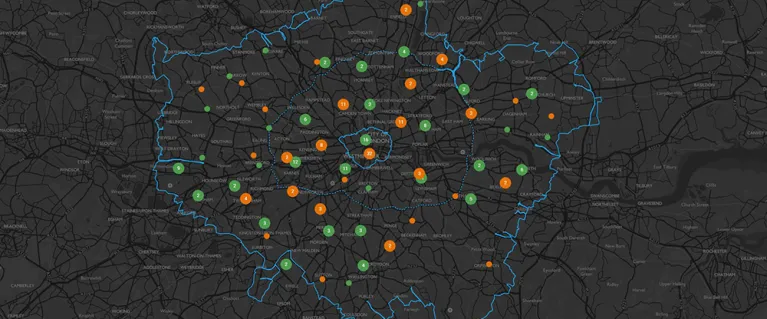
Regional ESOL coordination
The Home Office funds Strategic Migration Partnerships (SMPs) across the UK to support refugee integration. Each SMP has a regional ESOL coordinator. City Hall hosts the London Strategic Migration Partnership (LSMP).
In London, the regional ESOL coordinator is jointly funded by the Home Office, as part of funding for the LSMP, and the Mayor of London.
Key responsibilities include:
- assisting refugee resettlement coordinators in local authorities on ESOL
- improving access to ESOL across the city by publishing resources and guidance
- facilitating joined-up working between ESOL programmes and projects taking place across the region
- collecting and sharing insights on ESOL access and learner progression with policymakers, including the GLA's Skills and Employment Unit which holds the delegated Adult Skills Fund (ASF) for London
You can find out more about their work and get in touch using the buttons below.
ESOL Planning Data
First published in September 2021, the ESOL Planning Map is a strategic tool designed to assist providers, funders, and policymakers with ESOL planning and policy-making.
The map uses 2021 Census English language proficiency data, specifically data on the numbers of Londoners who said they spoke 'little' or 'no English', to indicate demand for English language provision in different parts of the city. The map contains the following information:
- Ward-level Census English language proficiency data for three age groups (3-15, 16-64 and 65 plus)
- local ASF and non-ASF funded ESOL providers
- potential delivery venues and/or referral partners
- data from the Index of Multiple Deprivation (2025)
- data on ESOL engagement through Adult Skills Fund (ASF) funded provision
- borough-level information on engagement in ESOL via the ASF
- borough-level information on the top thirteen most common community languages spoken by residents with English language needs
In the information section of the map you can find:
- an overview of the data, a glossary and data sources
- data on the total number of Londoners with English language needs in 2011 and 2021 by age group (3-15, 16-64 and 65 plus)
- total number of Londoners engaged in ESOL via the Adult Skills Fund (ASF) since delegation
- approximate spend on ESOL via the ASF in London since delegation
Separately, you can compare data between 2011 and 2021 using the GLA's Census Explorer. We add new and updated datasets as they become available. Subscribe to the GLA's monthly ESOL Newsletter to stay informed of updates.
Migrants and the Adult Skills Fund
In 2023, the GLA commissioned research to explore the impact of policy changes, introduced by the Mayor of London since delegation in 2019, to increase the accessibility of London's Adult Education Budget (AEB), now called the Adult Skills Fund (ASF), to Londoners from migrant communities. These changes include expanding the three-year residency waiver to include long term migrants; fully funding those earning less than the London Living Wage (LLW); and fully funding ASF-eligible people seeking asylum. The report, published in December 2023, highlights the positive impact the policy changes have had on migrants and people seeking asylum, and makes a number of recommendations.
ESOL in London in 2017
In 2017, prior to the delegation of the Adult Skills Fund (ASF) to the Mayor of London, the GLA commissioned research on the availability of formal and informal provision of English for Speakers of Other Languages (ESOL) in London, and undertook work to identify the language learning needs of resettled Syrian refugees in the city.
This research aimed to support London boroughs participating in the resettlement of Syrian refugees to provide appropriate ESOL provision to resettled adult Syrian refugees, and contributed to the wider development of ESOL policy in London. It took place at a time of considerable developments in skills policy in London, such as the anticipated delegation of the Adult Education Budget to the Mayor of London by 2019 and a review of Adult Community Learning.
Need a document on this page in an accessible format?
If you use assistive technology (such as a screen reader) and need a version of a PDF or other document on this page in a more accessible format, please get in touch via our online form and tell us which format you need.
It will also help us if you tell us which assistive technology you use. We’ll consider your request and get back to you in 5 working days.